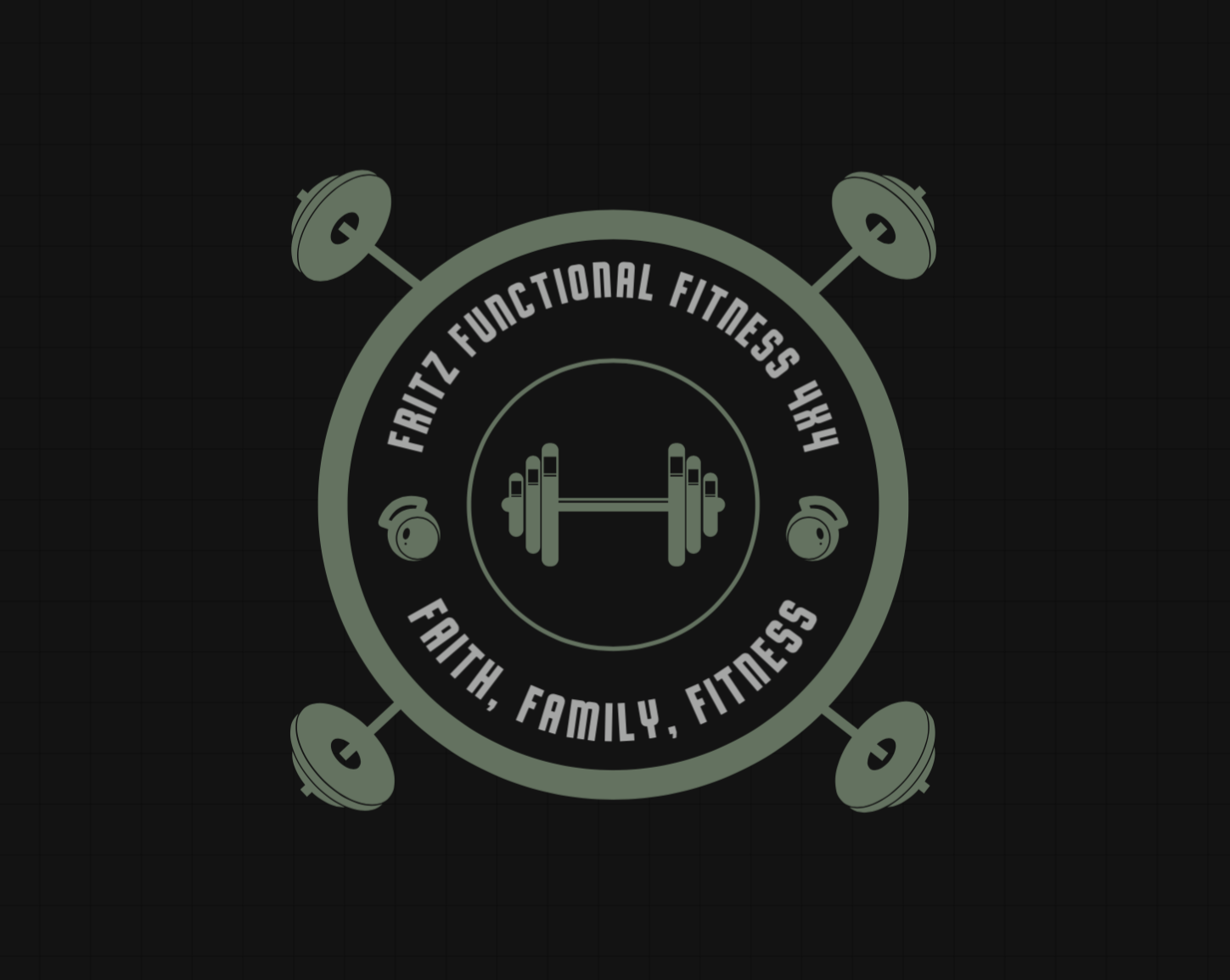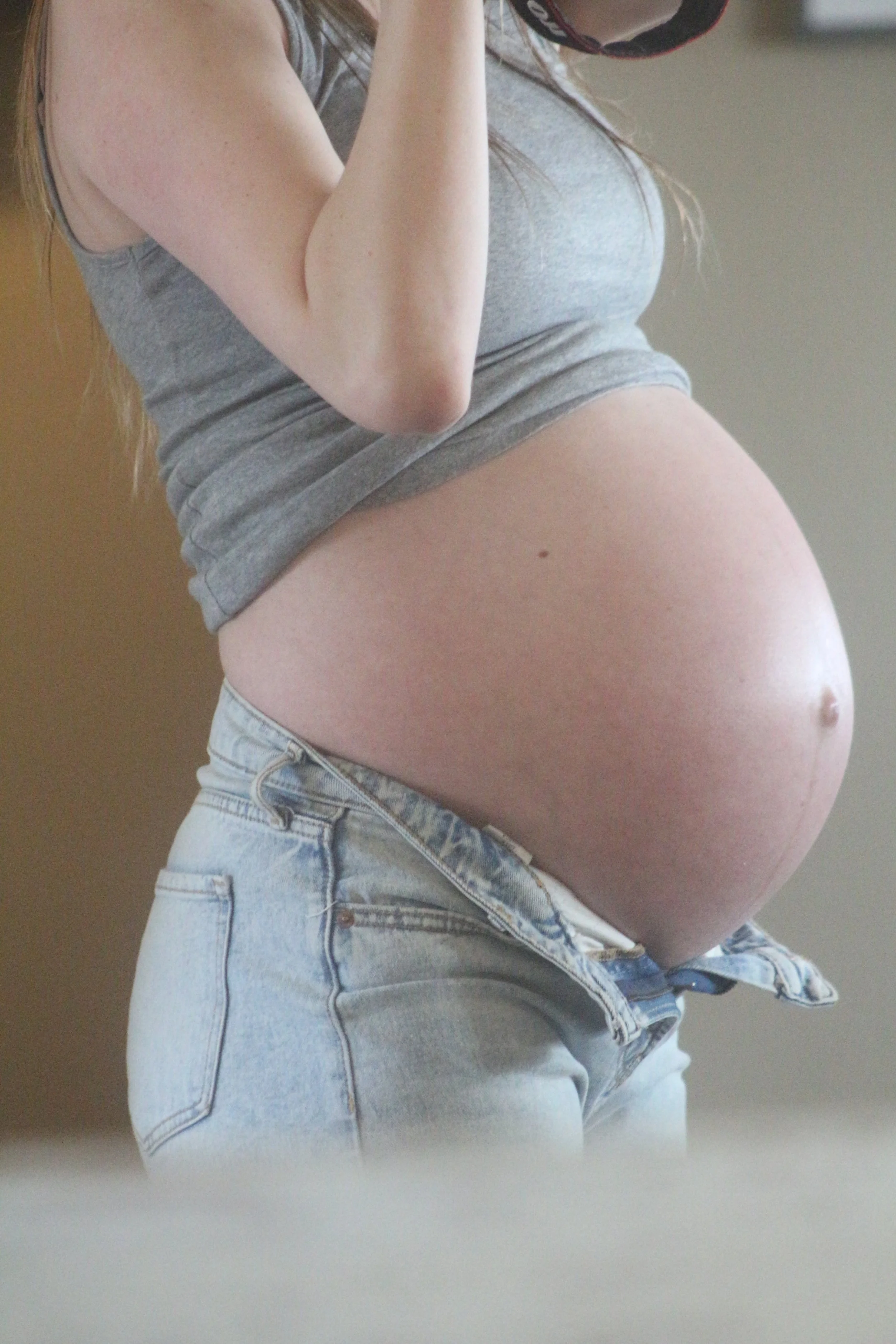More Than a Bounce Back: Healing, Strength & Motherhood
Postpartum is a journey—or at least, that’s what I read everywhere while I was pregnant. I was prepared to feel like I wasn’t in my own body, to not recognize myself in the mirror, and to accept that life would never look the same. Part of me was in denial, honestly. I thought to myself, I’ve been fit my whole life; bouncing back will be easy. Other moms do it.I had worked hard for my body—it couldn’t change that much.
But it did.
Let’s talk about how I got to that mindset.
Growing up, I was always an athlete. I jumped from one sport to the next before ultimately sticking with volleyball. I dedicated years to a sport I loved—countless practices, late nights at the gym, early mornings lifting weights, and weekends spent away from home. When I continued to play in college, the intensity only ramped up. Volleyball was my life, my identity, and my greatest source of joy for the longest time.
That being said, I had always been familiar with a certain version of myself. The only part of my body I ever struggled with wasn’t excess weight—but rather the difficulty of putting on weight. This was something I dealt with for a long time. Teammates jokingly called me “chicken legs,” older women told me they wished they had my metabolism, and coaches reminded me that to reach the next level, I would need to “bulk up.”
It ate me up inside.
I wished so badly that I could change my body overnight—to feel happier in my skin, to look stronger like the other women around me.
I took it to extremes. In college, I would go straight from volleyball training to a CrossFit gym. I ate thousands of calories. Finally, I looked the way I had always wished—my legs were bigger, my arms stronger. My coaches noticed, the people around me noticed, my family noticed.
But you know what’s funny about self-image? It’s never quite enough.
I became hyperaware of my weight, how my thighs touched, what I was lifting, and how hard I could push myself in CrossFit. All the while, I neglected the fact that I was idolizing my body.
You see, I don’t think I ever would have been truly happy with my progress while I was in that state of mind.
God created me perfectly, in His image, just as He intended. And it wasn’t until I realized and accepted that truth that I became aware of just how much pressure I had placed on my reflection in the mirror.
“Now, how does this apply to your postpartum journey?” you may ask.
Postpartum is HARD. Every woman’s experience is different, of course, but for me, it was a struggle. I was filled with immense joy, yet emotionally, it was a roller coaster. I was in shock, in pain, and learning so many new things about myself, my baby, my marriage, and my new life.
God opened my eyes to see my body in an entirely different light.
My body had grown, sustained, fed, housed, and birthed a baby who weighed over nine pounds—unmedicated, in my living room. And I was able to fully trust in God’s design. For years I spent so much time obsessing over my strength, yet motherhood taught me that it was there all along.
How wild is that?!
For the first couple of months, I focused solely on my baby. I learned how to breastfeed, how to change a diaper, and I got to know my child. I did breathwork to begin engaging my deep core muscles, but I wasn’t worried about my appearance. I gave myself grace to just be in this fresh postpartum stage.
It wasn’t until month three or four that I began itching to get back to it. By this time, I was surely ready to “bounce back.”
And this is where I don’t think enough moms speak up.
I was an athlete. I believe I always will be. I have an undergraduate degree in Exercise Science. And yet, motherhood had changed me.
I had the desire to work out and get back in shape, but it looked different now. I struggled to find motivation, to plan workouts, and to muster the energy to get after it. I had no desire to jump back into CrossFit, nor the competitive drive to push myself to the extreme. I just wanted to move. I desperately needed a routine.
I feel like a lot of moms find themselves in this position at some point.
Whether it lasts a few days, a few months, or even a few years, the desire is there—but the guidance is not.
That’s why I want to share six things that have helped me regain motivation, understand how movement may look different in this season of life, and start feeling confident in motherhood again.
I am 11 months postpartum, and I can confidently say that I am just now starting to settle into somewhat of a routine.
I wake up consistently at the same time (and give myself grace if I don’t).
I’m working out and following a program that helps me regain confidence.
I’m starting to feel strong—mentally and physically.
And it feels GOOD.
So many months were spent feeling sad, anxious, and like a shell of myself. If I can encourage just one other mom to commit to herself and realize that, through guidance and consistency, her mindset and confidence can completely change—that would be a major win.
With that being said, here are Six things that have helped me tremendously in this postpartum season! It took months to actually stick with them, and while they may seem like common sense, they have completely changed my outlook.
1. Nighttime Routine – Setting Yourself Up for Restorative Sleep
A solid nighttime routine is crucial for postpartum recovery, mental clarity, and overall well-being. Quality sleep impacts everything from hormone regulation to metabolism and mood. While newborn sleep is unpredictable, prioritizing a structured evening routine can help signal to your body that it’s time to wind down, even if sleep is broken.
No phones past 7 PM – Exposure to blue light from screens suppresses melatonin production, making it harder to fall asleep. Switching to a red light filter (or better yet, avoiding screens altogether) can support your body's natural circadian rhythm.
Baby’s bedtime routine – Creating a predictable wind-down routine for your little one (bath, book, nursing/bottle) helps them associate these cues with sleep, which in turn gives you more predictability.
Prayer & journaling – Taking a moment for gratitude, reflection, and spiritual connection before bed can ease anxieties and refocus your heart on what truly matters.
Reading – Swapping social media scrolling for reading a book (especially a calming or faith-based one) helps slow the mind and promote better sleep.
Blacked-out, cool bedroom – Keeping your sleep environment as dark as possible and setting the temperature between 60–67°F optimizes sleep quality.
Consistent bedtime – Going to bed at the same time each night helps regulate your circadian rhythm, making it easier to fall asleep and wake up feeling more refreshed.
2. Morning Routine – Starting the Day with Intention
Mornings set the tone for the rest of your day, and a structured morning routine can improve energy levels, productivity, and mood.
Wake up at the same time every day (no matter how tired) – Consistency helps regulate your body’s internal clock, improving sleep cycles and hormonal balance. Even if you’re up during the night, getting up at a set time each morning reduces grogginess.
Protein first – Starting your day with a high-protein meal stabilizes blood sugar, curbs cravings, and supports muscle recovery. Some great options: eggs, Greek yogurt, protein oats, or a smoothie with collagen and nut butter.
Drink a cup of water (bonus: add lemon juice & pink salt) – Hydrating first thing replenishes fluids lost overnight and kickstarts digestion. Adding lemon and pink salt provides electrolytes, aiding hydration and energy levels.
Move your body – Whether it’s stretching, walking, or a quick workout, morning movement improves circulation and sets a productive tone for the day.
Coffee after an hour of waking – Waiting an hour before drinking coffee allows cortisol (your natural energy-boosting hormone) to peak naturally, preventing crashes later.
Get dressed for the day – Even if you’re staying home, getting out of pajamas shifts your mindset into a more intentional, productive mode.
3. Planned Workout Program – Regaining Strength & Confidence
Exercise postpartum isn’t just about “bouncing back”—it’s about building sustainable strength, improving energy levels, and feeling good in your body again. A structured plan ensures progress while respecting your body’s needs.
Weekly structured workouts – Following a planned schedule eliminates decision fatigue and ensures balanced muscle engagement.
Progressive overload – Gradually increasing resistance, reps, or intensity over time promotes strength gains and prevents plateaus.
Core strengthening, posture, and balance/unilateral work – Pregnancy stretches and weakens the core, so rebuilding it properly is key. Unilateral (single-sided) movements help improve imbalances from pregnancy and postpartum posture.
Boosts confidence & energy throughout the day – Regular movement not only enhances physical health but also improves mental well-being by releasing endorphins, the “feel-good” hormones.
4. Journaling – Mental Clarity & Intentional Living
Journaling is an underrated tool for mental well-being, productivity, and spiritual growth. It helps process emotions, organize thoughts, and keep track of goals.
Brain dump – Writing down any racing thoughts, worries, or ideas clears mental clutter and reduces overwhelm.
Plan out the day – A simple morning or evening reflection on your priorities helps you stay on track.
Make a checklist of must-do tasks – Focusing on just a few essential tasks prevents burnout while ensuring progress in key areas.
Prayer journal – Writing out prayers helps deepen faith and provides a record of how God is working in your life.
5. Daily Time Outside – The Healing Power of Nature
Spending time outdoors is one of the simplest ways to boost mood, reduce stress, and improve overall health.
Green therapy – Studies show that time in nature lowers cortisol (stress hormone) levels, reducing anxiety and improving mental clarity.
Sunlight exposure (great for circadian rhythm & mood) – Morning sunlight exposure helps regulate sleep cycles and increases serotonin, which plays a role in mood and well-being.
Fresh air & serotonin boost – Breathing fresh air, even for 10–15 minutes, enhances mental focus and immune function.
Ways to incorporate daily outdoor time:
Take your baby for a stroller walk.
Sip your morning coffee outside.
Step outside barefoot for grounding.
Eat a meal on your patio or by an open window.
6. Fueling Your Body – Eating for Energy & Recovery
Postpartum nutrition should be about nourishment, not restriction. Eating well fuels your body to recover, sustain energy, and support hormone balance.
Whole foods – Prioritizing unprocessed, nutrient-dense foods provides essential vitamins and minerals for healing and energy.
High protein – Protein is crucial for muscle repair, satiety, and stable blood sugar. Aim for a source of protein at every meal and snack (eggs, beef, chicken, fish, Greek yogurt, cottage cheese, nuts, etc.).
Minimal added sugar (80/20 balance) – Cutting down on processed sugars reduces inflammation and energy crashes, while allowing for balance and enjoyment.
Mindful portion sizes – Eating enough is just as important as eating well. Undereating, especially while breastfeeding, can lead to fatigue, hormone imbalances, and mood swings.
So many months were spent feeling sad, anxious, and like a shell of myself. If I can encourage just one other mom to commit to herself and realize that, through guidance and consistency, her mindset and confidence can completely change—that would be a major win.
I’d love to hear from you! What has your postpartum fitness journey looked like? What’s been the hardest part for you? Drop a comment below and let’s encourage one another!



